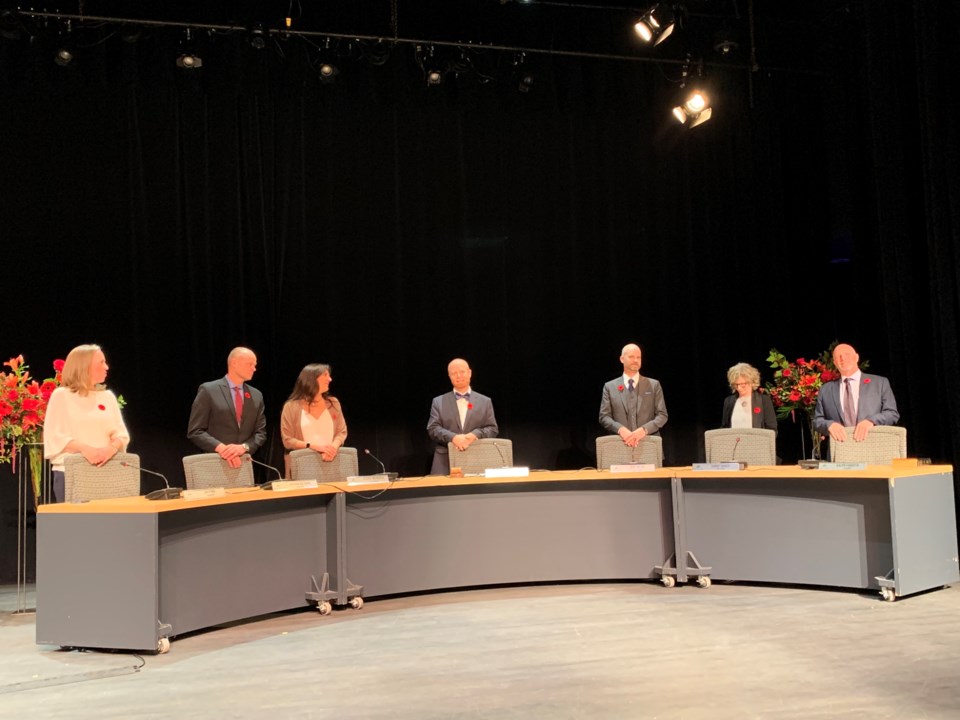In a recent, unofficial survey, Edgar Dearden of local sustainable building company GNAR Inc. asked more than half a dozen working professionals in Whistler if they knew what "natural gas" actually is.
Not one could provide a proper definition.
That exercise led Dearden to write to Whistler's mayor and council, requesting that the Resort Municipality of Whistler "update its style guide to replace the term 'natural gas' with 'fossil gas' when referring to the gas supplied to consumers."
"This change would clarify that the subject is fossil fuel that we must urgently reduce," he wrote.
According to Dearden, changing the terminology is important "because a large percentage of the population, upwards of 60 per cent, I would estimate, are not able to identify what natural gas is, and they are not able to identify that it is a fossil fuel,” he said.
Generally, natural (fossil) gas is a naturally occurring mixture of gaseous hydrocarbons, mainly methane, and various smaller amounts of other higher alkanes. It is used primarily for home heating, power generation and plastic production.
The usage of the term fossil gas varies across the world. However, Dearden noted that some countries, such as Sweden, are increasingly moving toward using this terminology to counter the perception that natural gas being natural is somehow better for the environment.
But in considering the request at its May 16 meeting, Whistler's mayor and council opted to stick with the natural gas terminology (for now, at least).
At the meeting, council voted six to one to have staff consider any potential natural gas nomenclature changes be done through future Big Moves implementation planning processes rather than investigating replacing the phrase natural gas with fossil gas.
Councillor Cathy Jewett was the lone voice of support.
“I think that it's time to change the name,” Jewett said. “I'm not saying put a ton of energy into it, I'm just saying as we go along that we just refer to it as fossil gas where we can.”
Councillors Arthur De Jong and Jeff Murl made clear that they didn’t want to see staff time expended on the issue, and instead preferred to focus on actively transitioning the municipality away from fossil fuels through processes like strengthening local Step Code standards.
“I don't want staff to spend a minute on climate semantics,” De Jong said. “Natural gas is confusing; I will give Mr. Dearden some credit that it confuses some people. Certainly, when natural gas companies promote natural gas to achieve our greenhouse gas targets, it's often very misleading.
“I have much to say about this, but certainly for countries like Germany and China that have a lot of coal plants operating, it is a transition hydrocarbon fuel, but we don't need to be spinning our wheels on semantics."
Coun. Murl echoed that thought.
"This is an exercise in marketing, and they've done a great job of marketing it but I think the best way to go against marketing is not to buy this stuff,” he said.
Dearden was dismayed to hear the pushback from De Jong, who is known as an environmental champion among Sea to Sky politicians.
“As someone who's trying to raise awareness of just how few people are able to comprehend the term natural gas, I find Coun. De Jong's response genuinely horrifying. This is such a small measure that it costs little to no money. It's low-hanging fruit,” Dearden said.
“It seems like the step a climate leader would take, and I don't understand why Arthur is so scared to show leadership on the climate file. It's baffling. Especially when I see the news today that we will surpass 1.5 degrees of global heating by 2027.”
Dearden has also sent letters to municipal councils in Pemberton, Squamish, North Vancouver and Burnaby.
While still awaiting a response from the other Sea to Sky communities, in the case of Burnaby, he was notified that municipal staff are reviewing the implications of the proposed change, while North Vancouver is taking the change under advisement as they refine their messaging on topics on climate action.
Whistler's community-wide emissions rose 17 per cent in 2021. An update presented to council last August painted a bleak view of the resort's climate future.



